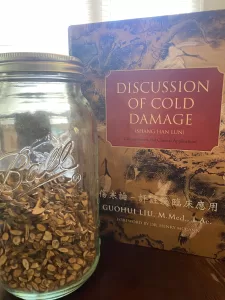
As we approach an exciting Yankees first World Series appearance in 15 years, Halloween, and an even scarier Election Day, there’s a good chance a lot of people will be losing their voices, as a result of screaming and shouting, hopefully for joy. Couple that with the dry autumn season, which corresponds with Chinese medicine’s lung channel, and many will be more prone to hoarseness and/or dry, hacking coughs.
Aphonia, or loss of voice, can happen for one of two reasons in Chinese medicine:
- The adrenals that secrete hormones, such as estrogen are weak and/or weak in reserves and there just isn’t enough fluid to lubricate the throat. For this, the best self-care recommendations are eating good quality pork and beefs and getting plenty of rest, with early bedtimes. Herbal medicine is preferable to acupuncture, namely formulas that help strengthen the kidneys and generate systemic fluids.
- Dryness exists more around the pancreas and stomach organs, subtly impairing digestion and giving rise to dry, inflammatory heat that tends to flare up into the chest and throat, then drying out the fluids up top and creating a vicious cycle. Labeled a “Shao Yang” pathology, this is common in singers and teachers, and can be treated with acupuncture and/or herbal medicine. Best self-care recommendations are possibly a bit more exercise, white rice, and/or congee and sweet potatoes, red date tea, and again, early bedtimes.
Of course, there are other causes, other etiologies and contributing factors, such as being on one’s menses, which dries out the internal blood, which in turn dries out either the kidneys or digestive organs, exemplifying these patterns as primary suspects to target in treatment.
Peppermint tea with honey is another fine option to treat, although if you are prone to bloating, loose stool, or lack of appetite, honey might not be the best thing for you.
On the other hand, ginger tea is likely to aggravate this situation due to its drying nature. While potentially very healthy, ginger has earned itself an undeserving reputation as unconditionally so, especially when treating people suffering from anemia or any chronic dryness.
When navigating any form of soreness or dryness from the chest up it is advisable to avoid hot sauce or spicy foods, as they can obviously aggravate the inflammation. Ironically, it is equally advisable to avoid iced cold drinks, which constrict vasculature around the throat and further impede the arrival of healthy systemic fluids to lubricate the region
Wishing everyone a lubricated throat and organs in these highly anticipated events!
I’m predicting Yankees in 7.
I’m predicting Kamala.
And in a group family effort, I will be Olaf from Frozen for Halloween. Pics to come!






